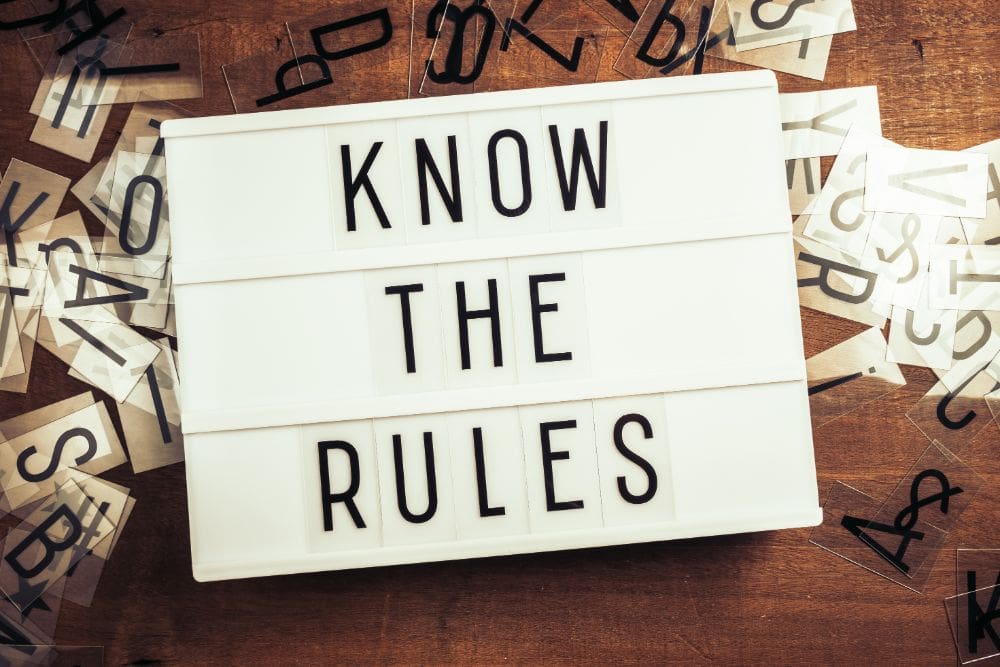Disclosure: This post contains affiliate links, including Amazon Affiliate Associate links, through which I earn from qualifying purchases at no extra cost to you. I only recommend products I genuinely believe in. Visit my Privacy Policy page for more information.
So, you want an answer to “What is off-site SEO? Are you struggling to rank higher on search engine results pages and increase your website’s visibility? It’s time to look beyond on-page SEO and explore the world of off-site SEO. In this comprehensive guide, we’ll dive into the question, “What is off-site SEO?” and its importance, key strategies, and best practices to improve your website’s search engine rankings and online presence.
Short Summary
Off-site SEO involves activities outside your website to increase visibility & authority.
Link building, social media marketing and local SEO are vital strategies that can help improve rankings & generate more traffic.
Focus on quality over quantity when implementing off-site SEO techniques and stay updated with search engine guidelines for the best results.
Understanding Off-site SEO

Off-site SEO, or off-page SEO, refers to activities beyond your website, such as acquiring off-page SEO links, engaging in social media, and content marketing. These off-page optimisation activities are crucial for boosting your website’s search engine rankings, visibility, and authority. In contrast, on-page SEO focuses on optimising elements within your website to improve its performance and relevance to search engines.
Let’s further explore the concept of off-site SEO by defining it and understanding its importance.
Defining Off-site SEO
Off-site SEO encompasses actions beyond your website’s boundaries, such as acquiring backlinks from authoritative and relevant websites, social media engagement, and content marketing. These efforts ultimately lead to better rankings in search engine results. Key off-site SEO strategies include link building, social media marketing, local SEO practices, and content marketing.
Acquiring high-quality backlinks from authoritative and relevant websites is essential, as search engines consider these backlinks as votes of confidence for your domain. Guest posting, influencer marketing, and content repurposing are some content marketing techniques that can help you gain valuable backlinks and improve your off-site SEO.
The Importance of Off-site SEO
Off-site SEO is crucial for improving search engine rankings, increasing website visibility, building online credibility, and enhancing user engagement. It’s essential to use both on-page and off-page SEO techniques to ensure the effectiveness of your off-site SEO strategy. Focusing off-page SEO link-building efforts on trusted websites with excellent link equity is vital to boosting search engine rankings and website authority.
One way to get your brand noticed is through press releases. This effective off-page SEO technique involves creating and sharing newsworthy stories or information about your business with media outlets and online platforms. Podcasts are also a great way to get in front of new people, showcase your expertise, and gain backlinks.
Key Off-site SEO Strategies

Now that we better understand off-site SEO, let’s dive into the key strategies that can help improve your website’s search engine rankings and online presence. Link building, social media marketing and local SEO are some systems to be deployed to generate more traffic. Properly implementing them leads to high conversion rates.
Link Building Techniques
Link building is an essential off-site SEO Strategy that involves acquiring high-quality backlinks from authoritative and relevant websites. These backlinks act as votes of confidence for your website’s domain and help search engines determine your website’s authority and search engine rankings. Implementing a well-planned link-building strategy is crucial for building links and improving your online presence.
There are various link-building techniques, such as natural link building, buildings, and created link building. Focusing on natural or built links is the key to a successful off-site SEO strategy. Natural links are acquired organically when other websites link to your content, while built links are created when you reach out to web admins, publishers, or journalists for backlinks.
Social Media Marketing
Social media marketing plays a significant role in off-site SEO by expanding the reach of your content, generating backlinks, and improving user engagement. Sharing and linking to content on social media platforms can give your content a real boost in visibility. Although Google hasn’t confirmed that social media backlinks directly influence SEO, your social profiles appear on search engine results pages (SERPs).
Connecting with your community on social media can lead to more shares, backlinks, and clicks, which helps boost domain authority. Maintaining favourable social profiles and engaging with customers can create a great first impression and increase brand recognition.
Local SEO Practices
Local SEO practices target customers in your local area and boost your visibility in localised search results. This is particularly important for businesses that have a physical presence. Implementing local SEO involves tactics to increase visibility to potential customers within a particular geographic area, such as optimising your Google Business Profile and managing online reviews.
NAP (Name, Address, Phone Number) citations are also crucial for local SEO. These citations are places online that mention your business’s essential details. Google uses NAP citations to ensure your business information is correct, so it’s necessary to maintain accurate and consistent NAP citations across the web for local SEO success.
Enhancing Your Off-site SEO Through Content Marketing

Content marketing strategies, such as guest posting, influencer marketing, and repurposing, can enhance off-site SEO efforts by reaching new audiences, gaining backlinks, and improving search engine rankings.
Let’s examine how these content marketing strategies can improve off-page SEO and enhance your off-site SEO.
Guest Posting Opportunities
Guest posting is a powerful off-site SEO technique that involves collaborating with other website owners or bloggers to showcase your expertise and provide high-quality backlinks that improve search engine rankings. By writing and publishing content on someone else’s website or blog, you can reach a larger audience and build high-quality backlinks to your website.
You can use search operators like “affiliate marketing” + “this is a guest contribution” to find guest posting opportunities. When guest posting, ensure the content is top-notch, appropriate for the intended audience, and adheres to the website’s rules. Additionally, ensure the content is original and the backlinks are relevant and high-quality.
Influencer Marketing
Influencer marketing is another effective off-site SEO strategy That leverages the power of famous bloggers and social media creators to promote products or services, increasing website visibility and authority. Partnering with influencers can boost brand awareness, create backlinks, and reach new audiences.
To implement influencer marketing, you can use tools like Buzz Guru’s Influencer Analytics tool to find influencers with high engagement stats and contact emails. Collaborating with influencers who align with your brand values and target audience can help ensure a successful influencer marketing campaign and enhance your off-site SEO efforts.
Repurposing and Syndicating Content
Repurposing and syndicating content is a valuable off-site SEO approach that involves adapting existing content for different platforms or formats. This can help you reach a wider audience, boost visibility, and enhance off-site SEO efforts. Repurposing content involves reformatting your existing content to suit different platforms and audiences while syndicating content consists of sharing it on other websites or media to increase its reach.
When repurposing and syndicating content, make sure it’s optimised for the platform it’s being used on, is of high quality, and is relevant to your audience. Avoid plagiarism, creating duplicate content, or posting low-quality material, as these can harm your off-site SEO efforts and online reputation.
Monitoring and Measuring Off-site SEO Success

Monitoring and measuring off-site SEO success is crucial for understanding the effectiveness of implemented strategies and making data-driven decisions for improvement. In this section, we’ll explore backlink analysis tools and brand tracking to help you gauge the success of your off-site SEO efforts.
Backlink Analysis Tools
Backlink analysis tools, such as Moz Link Explorer and SEMRUSH, can help you track and analyse the quality and quantity of backlinks acquired through off-site SEO efforts. These tools provide insights into the number and quality of backlinks pointing to your website and details about the anchor text, referring domains, and other relevant metrics.
Regularly monitoring your backlink profile using these tools can help you identify potential areas for improvement, spot any issues, and make informed decisions to optimise your off-site SEO strategies. Analysing your backlinks can also reveal the effectiveness of your link-building efforts and help you prioritise high-quality backlinks over low-quality ones.
Brand Mentions and Online Reputation Management
Brand mentions and online reputation management tools can help you monitor and manage your website’s online presence, ensuring a positive image and substantial authority. Tracking brand mentions, responding to feedback, and maintaining a good reputation online is vital for off-site SEO success.
Engaging with customers, creating content relevant to your brand, and using social media to promote your brand are all strategies for creating a positive online presence. By staying on top of brand mentions and managing your online reputation, you can enhance your off-site SEO efforts and ensure long-term success.
Off-site SEO Best Practices and Avoiding Pitfalls

To achieve the best results from your off-site SEO efforts, following best practices and avoiding pitfalls is essential. This includes focusing on quality over quantity and staying updated with search engine guidelines.
Let’s explore these best practices in more detail.
Focusing on Quality Over Quantity
Prioritising high-quality backlinks, content, and engagement over sheer numbers can lead to more sustainable and effective off-site SEO results. Focusing on quality ensures that you produce top-notch work, leading to better customer satisfaction, increased credibility, and long-term success. By concentrating on quality, you can deliver exceptional value and stand out.
Using white-hat strategies, such as natural and built link building, is the best way to acquire high-quality backlinks. Avoid black-hat techniques, such as creating spam or buying links, as these can harm your website’s reputation and rankings.
Staying Updated With Search Engine Guidelines
Staying informed about search engine guidelines and algorithm updates can help you adapt your off-site SEO strategies and avoid potential pitfalls. Regularly check for updates from search engines, subscribe to SEO-related newsletters and blogs, and follow industry experts on social media to stay on top of the latest developments.
When keeping up with search engine guidelines, avoid making significant changes to your website in response to algorithm updates, which could lead to penalties or other adverse outcomes. Steer clear of old or unethical SEO tactics, such as keyword stuffing or link buying, as search engines, including other search engines, can penalise you for these practices.
Summary
By understanding off-site SEO and implementing key strategies such as link building, social media marketing, and local SEO, along with content marketing techniques like guest posting, influencer marketing, and repurposing content, you can significantly improve your website’s search engine rankings, visibility, and authority.
Monitoring and measuring off-site SEO success and adhering to best practices, such as focusing on quality over quantity and staying updated with search engine guidelines, will ensure long-term success and help you stand out. Keep your off-site SEO efforts on track, and watch your online presence soar!
Frequently Asked Questions
What does off-site SEO do?
Off-page SEO involves activities outside a website, such as link building, guest posting, and social media marketing, to improve its rankings in search engine results. It helps search engines understand the web pages and increases a website’s trustworthiness and authority in the eyes of both search engines and users.
What is off-site SEO vs. on-site SEO?
On-site SEO is all about optimising your website to make it search engine-friendly. In contrast, off-site SEO includes external measures such as advertising to make it easier to find through search engines.
Why is off-site SEO important?
Off-site SEO is crucial for improving a website’s ranking and reputation, helping it appear higher in search results.
What are some critical off-site SEO strategies?
Key off-site SEO strategies involve building quality backlinks, leveraging social media platforms, and optimising your website for local search.
How can content marketing enhance off-site SEO efforts?
Content marketing can effectively reach new audiences, gain backlinks, and ultimately improve search engine rankings, boosting your off-site SEO efforts.
It can be used to create engaging content that resonates with your target audience, build relationships with influencers, and increase brand awareness.
You can establish yourself by creating valuable and relevant content for your target audience.








